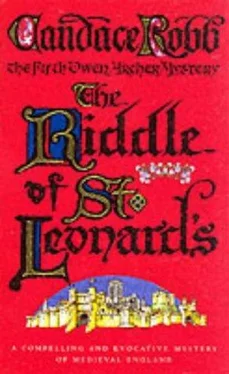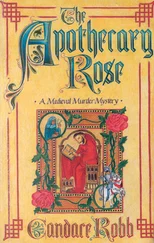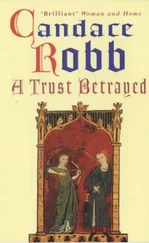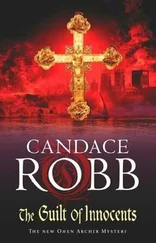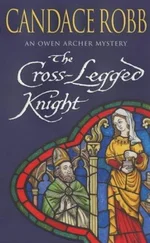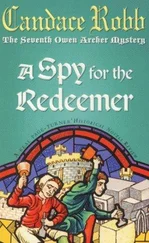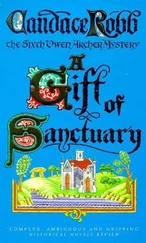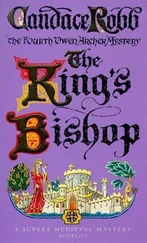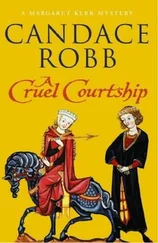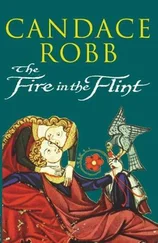Candace Robb - The Riddle Of St Leonard's
Здесь есть возможность читать онлайн «Candace Robb - The Riddle Of St Leonard's» весь текст электронной книги совершенно бесплатно (целиком полную версию без сокращений). В некоторых случаях можно слушать аудио, скачать через торрент в формате fb2 и присутствует краткое содержание. Год выпуска: 2011, ISBN: 2011, Издательство: Random House, Жанр: Исторический детектив, на английском языке. Описание произведения, (предисловие) а так же отзывы посетителей доступны на портале библиотеки ЛибКат.
- Название:The Riddle Of St Leonard's
- Автор:
- Издательство:Random House
- Жанр:
- Год:2011
- ISBN:9781446439838
- Рейтинг книги:4 / 5. Голосов: 1
-
Избранное:Добавить в избранное
- Отзывы:
-
Ваша оценка:
- 80
- 1
- 2
- 3
- 4
- 5
The Riddle Of St Leonard's: краткое содержание, описание и аннотация
Предлагаем к чтению аннотацию, описание, краткое содержание или предисловие (зависит от того, что написал сам автор книги «The Riddle Of St Leonard's»). Если вы не нашли необходимую информацию о книге — напишите в комментариях, мы постараемся отыскать её.
The Riddle Of St Leonard's — читать онлайн бесплатно полную книгу (весь текст) целиком
Ниже представлен текст книги, разбитый по страницам. Система сохранения места последней прочитанной страницы, позволяет с удобством читать онлайн бесплатно книгу «The Riddle Of St Leonard's», без необходимости каждый раз заново искать на чём Вы остановились. Поставьте закладку, и сможете в любой момент перейти на страницу, на которой закончили чтение.
Интервал:
Закладка:
Ravenser bowed, still with a polite smile, but Thoresby had seen discomfort in the man’s eyes. Good. He understood that Thoresby looked after his own interests in this. He would not want his nephew to think him an unconditional ally.
Don Erkenwald, almoner of St Leonard’s, heard the whispers about Walter de Hotter’s death. He did not like them. The rumour of the hospital’s financial troubles had been circulating through the city for several months, and now someone had attached a juicier titbit to it. No one had thought twice about John Rudby’s death, but the death of Walter de Hotter was clearly murder. And though Walter had lived out in the city, he had just returned from the hospital when attacked. His death further risked the hospital’s already tarnished reputation.
The situation deserved more attention than his brother in charge of the hospital gave it. How had his fellows elected Don Cuthbert to the position of cellarer over him? The puny canon had been content with the bailiff’s suggestion that Walter had surprised a burglar, and he refused to speak of it further. He had been particularly deaf to Erkenwald’s suggestion that Richard de Ravenser, Master of St Leonard’s, be informed of the rumours.
As to informing him, Don Erkenwald had already seen to that, writing to Sir Richard about the hospital’s financial troubles being made public. Ravenser might be busy in Westminster as Keeper of the Hanaper and Queen’s Receiver, but surely not too busy to care about the reputation of his hospital. Erkenwald hoped that the master might even now be planning a journey north to mingle with the important families of the city and convince them that all was well. It was not the time to allow such lies to poison the people’s opinion of the good works St Leonard’s accomplished, not now, when the merchant guilds were building elegant halls and housing their own sick and elderly in the undercrofts. These were the very merchants on whom they depended for generous gifts to support St Leonard’s.
On his almoner’s rounds among the poor, Erkenwald now made it his business to ask whether anyone had seen aught, or heard aught about Walter de Hotter’s death that seemed more than rumour. On one of the afternoons when he stole some time to practise at the butts on St George’s Field — his vows had not obliterated his training as a soldier — Erkenwald asked the advice of one said to be the best spy in the north.
While he unstrung his bow, Owen Archer listened with interest — until Erkenwald came to the motivation.
‘Murdering a respected merchant to ruin a rival hospital’s reputation?’ The tall, one-eyed man grinned. ‘You should go back to soldiering. All that prayer has softened your wits.’
Erkenwald laughed at that. ‘Prayer. There are those in my house who would say I pray too little. ’Tis why they chose Cuthbert over me. Prayer is ever his response. Every time another treasure disappears he hies to church and prays. I suppose he believes the good Lord has decided to redistribute the wealth of St Leonard’s.’
‘I had not heard of any thefts.’
‘Well, and that is as it should be. In that I agree with Cuthbert. I suppose a thief in our midst is not a story merchants would care to use, being thieves themselves, eh?’
‘What is missing?’
Erkenwald needed no coaxing. He knew the story would go no further, and perhaps Archer would see a pattern in it. ‘Riches, to be sure. A gold chalice finely wrought, a delicate silver missal cover, goblets of Italian glass. Such things.’
‘And Don Cuthbert’s response to such a loss is to pray?’
‘He does little else.’ But Erkenwald saw that Owen’s attention wandered: he fidgeted with his quiver of arrows. No matter. The information was his to use. ‘I thank you for listening, Captain.’
‘Forgive my haste. My children leave for the country on the morrow. I have much to do.’
‘You send them to Mistress Wilton’s father?’
‘We do.’
‘To keep them from the pestilence?’
Owen pressed the scar below his eyepatch. ‘Foolish, eh? As if Death did not walk all the countryside.’
‘Still, a wise precaution.’
‘God go with you, Don Erkenwald.’
As Owen walked away, the canon noticed a slump in the archer’s shoulders, which was not in character. To send his children away must have been a difficult decision.
John Thoresby and Richard de Ravenser sat quietly on the barge travelling up the Thames. The afternoon sun had warmed the river water to an unpleasantly pungent degree, but at least a breeze stirred their rich garments where they sat beneath the awning. Their men-at-arms were not so fortunate; they stood in their own sweat in the sunlight. Thoresby watched the swans on the river, ghostly shadows amidst the reeds and grass along the bank. He felt his nephew studying him. Did he think to find his future in his uncle’s face? Folk often commented on the two men’s appearance: outwardly so similar, they seemed the same man at two stages in life, prime and, well, it must be said, old age. But it was an illusion. In soul they were nothing alike. Ravenser was enjoying the journey; he smiled now and waved at a lady on a passing barge who was being serenaded by a lute-plucking lover. Thoresby could not so enjoy himself this day, on his way to what might be his last audience with Queen Phillippa.
*
Windsor Castle shimmered in the summer heat but, within, the thick stone sweated and gave off a damp chill. Aromatic fires burned everywhere to ward off the pestilence, creating a fog in some of the passageways. Continuous Masses were said for the people, and once a day a procession wound from St George’s Chapel around the lower ward, through the Norman Gate, and around the upper ward, with a benediction said at the royal apartments before the procession returned to the chapel. Servants with any signs of fever were sent to wait out their illness outside the castle. Only those necessary to or summoned by the King or Queen and who appeared in good health were allowed into the royal apartments.
Ravenser entered the Queen’s chamber with trepidation. He had always come here on the Queen’s business, at her bidding. This was different. This was his business, instigated by his missive to the Queen explaining his situation. The worst of it was that now it seemed a trivial matter to put to a dying Queen.
But she had graciously invited him. And now she waved him to her side with a red, swollen hand.
‘Your Grace,’ Ravenser knelt at her side.
‘Come. I have little time for ceremony at present, my good Receiver.’
‘Forgive me for intruding …’
She grunted to silence him. ‘I have little head for state affairs at present. I have prayed over this and believe it is God’s will that you go north and put your house in order. You are best away from the city and court at such a time.’
‘Your Grace, you are most kind. I shall entrust the purse to my best clerk in my absence.’
The Queen lay her head back on the silky mound of pillows. A lady-in-waiting made herself known and showed Ravenser out.
Tears shimmered in the Queen’s eyes. ‘My dear John, old friend.’ She pressed Thoresby’s hand, released it. ‘Pray for me.’
‘I beg the same of you.’
‘Help Edward when I am gone. He will need you.’
Thoresby did not say that the King had not called upon him for anything outside his duties as archbishop in a long while. This was neither the time nor the place. But he did have a request. ‘I would be your confessor. Stay beside you until …’ He could not say it.
Phillippa’s rheumy eyes glistened with tears. ‘No. I could not bear it. With Wykeham I do not feel this pain.’
So it was true. William of Wykeham, Lord Chancellor and Bishop of Winchester, was the Queen’s confessor in her last days. Thoresby had not believed it. To hide his dismay, he told Queen Phillippa of his plan to complete the Lady Chapel.
Читать дальшеИнтервал:
Закладка:
Похожие книги на «The Riddle Of St Leonard's»
Представляем Вашему вниманию похожие книги на «The Riddle Of St Leonard's» списком для выбора. Мы отобрали схожую по названию и смыслу литературу в надежде предоставить читателям больше вариантов отыскать новые, интересные, ещё непрочитанные произведения.
Обсуждение, отзывы о книге «The Riddle Of St Leonard's» и просто собственные мнения читателей. Оставьте ваши комментарии, напишите, что Вы думаете о произведении, его смысле или главных героях. Укажите что конкретно понравилось, а что нет, и почему Вы так считаете.
